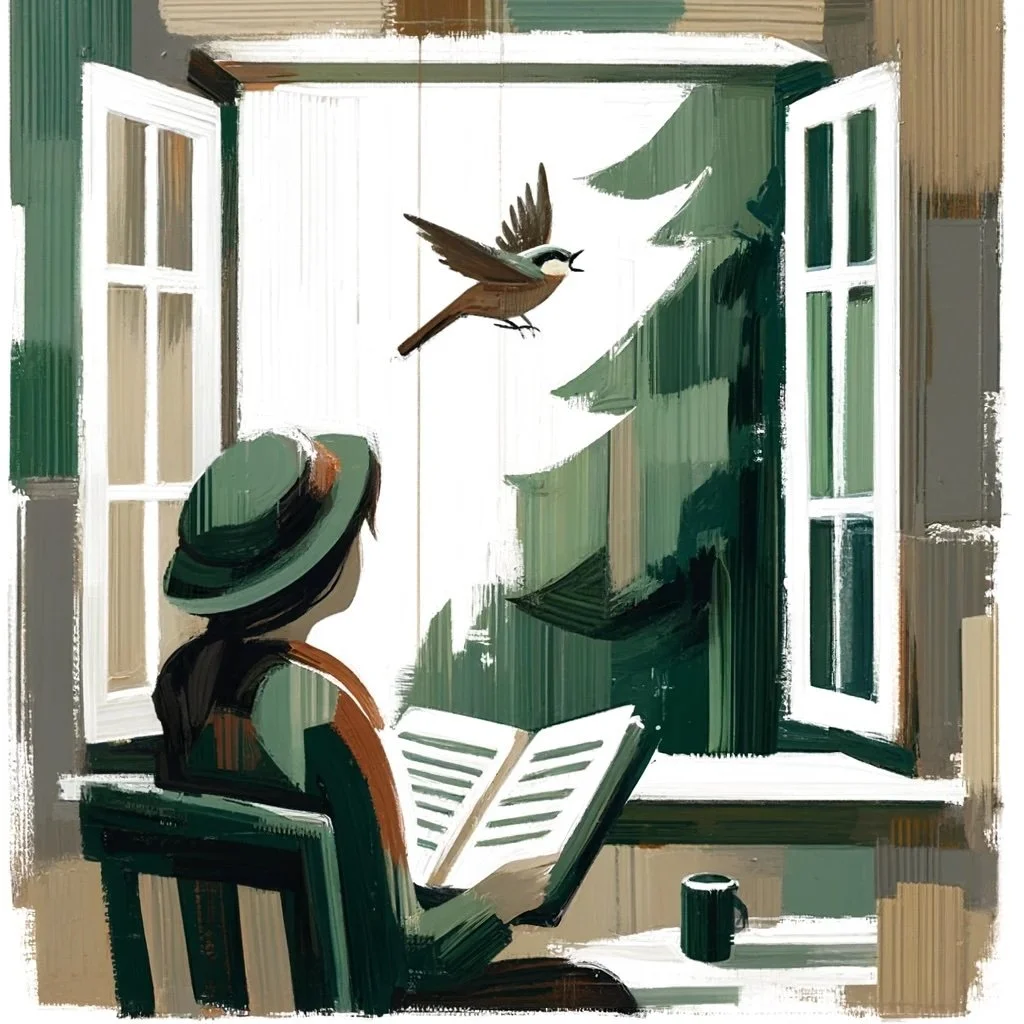
Welcome to our informational blog.
Topics covered include literary theory and practice, academic writing techniques, philosophy of education, and explanations of our methods for enhancing creative intelligence.
Decoding Symbolism: A Guide to Enhancing Your Literary Craft
While symbols are integral to enriching literary works, creating and integrating them effectively demands sensitivity to the narrative's subtleties and a deep understanding of the audience's perspective. A manuscript consultation with a freelance book editor is an invaluable step for writers looking to refine and enhance the symbolic and imagistic elements of their book.
Ambiguity in Literature: Fostering Participatory Reading
An English literature tutor guides students through the analysis and interpretation of ambiguity. The key to effective tutoring in this context is to equip students with the tools necessary for close reading and to foster an environment where open-ended discussion and multiple interpretations are encouraged.
The Ghazal in English: Ancient Forms in Modern Poetry
The ghazal’s adaptability makes it a valuable tool for a poetry writing coach to help their clients explore a range of emotions and subjects within manuscript consultations. The ghazal’s traditional structure offers a unique blend of strict formal constraints and expressive freedom, making it an excellent pedagogical tool in both group workshops and one-on-one sessions.
The Fiction Writer's Guide to Mind Mapping: Developing Characters and Plots Visually
In addition to traditional linear notes, a freelance writing coach can offer a mind map as a dynamic way to freely associate ideas. This does more than speed up the idea generation process in fiction writing classes. The visual nature of mind maps helps in fiction writers spot connections and gaps in their narrative more easily.
Echoes of Carver: Embracing Minimalism in Modern Short Stories
Raymond Carver’s minimalist approach to short story writing not only transformed the literary world’s view on narrative simplicity but also influenced the techniques employed by literary fiction writers and the editors who refine their works. Short story editors guide writers to pare down their narratives to the essential, enhance the potency of dialogue, and embed subtext to achieve the blend of realism and introspective storytelling that Carver championed.
Defamiliarization: The Art of “Making Strange”
A fiction writing coach can leverage the concept of defamiliarization to not only deepen the narrative's intrigue but also sharpen the writer's ability to convey sensory details and encourage a freer experimentation in their craft.
From Hero to Shadow: Exploring Archetypal Roles in Fiction
Storytelling coaches, equipped with an understanding of archetypal structures, play a crucial role in guiding fiction writers through the development of their work. From conceptualization to revision, coaches help writers harness the power of archetypes to craft narratives that are engaging, meaningful, and reflective of what it means to be human.
Crafting Reality: Tim O’Brien and The Role of Verisimilitude in Memoir Writing
By examining the complex interplay of memory and truth in O'Brien's narratives, we discover insights into how memoir writing coaches can guide authors in employing verisimilitude to enhance the authenticity and impact of their work.
Jonathan Swift and the Art of Satirical Critique
The transformative journey of mastering satire, as detailed through the insights of "A Modest Proposal," highlights the indispensable role of a writing coach in guiding authors to leverage this potent narrative form.
Mastering the Art of Suspense: A Fiction Writer's Guide
Mastering the art of suspense is no small feat. It requires an understanding of narrative structure, character psychology, and the thematic underpinnings that make a story resonate on a deeper level. This is where the role of a fiction writing coach becomes invaluable.
Specters of the Past: Exploring Generational Memory Through the Ghosts of Literature
Writing coaches play a pivotal role in guiding clients to skillfully incorporate narrative devices, such as ghosts, to explore themes of the past, memory, and generational legacy in their work.
Unraveling the Monomyth: The Power of the Hero's Journey in Storytelling
Understanding the psychological underpinnings of the Hero's Journey enables coaches to help writers craft narratives that resonate emotionally with audiences. By focusing on the inner journey of the hero, writers can create stories that offer genuine insights into the human condition.
Fairy Tales Through Time: From Oral Tradition to Modern Storytelling
Fairy tales, in their myriad forms, continue to enchant and educate, proving that the need for stories is as essential to the human experience as ever. In employing these elements, a writing coach not only aids in the technical craft of storytelling but also taps into the deep well of human experience embedded in fairy tales and folk traditions.
The Craft of Free Indirect Discourse in Narrative Writing
Free Indirect Discourse (FID) is a nuanced and sophisticated narrative technique that merges the voice of a third-person narrator with the thoughts and speech of the characters within a story. This technique effectively blurs the lines between the narrator's commentary and the internal monologue of the characters, allowing readers to delve into the characters' minds without the need for direct quotation or explicit attribution.
Below the Surface: Hemingway's Iceberg Theory and Its Implications for Modern Writing
Ernest Hemingway's Iceberg Theory, also known as the theory of omission, is a cornerstone of literary modernism that emphasizes the depth of narrative lying beneath the surface of the text.
Writing Coaches & the Literary “Resurgence”
As we stand on the cusp of potential future literary revolutions, it's exciting to consider what these periods of intense creativity have looked like in the past, and to speculate on the directions they might take in the future. Also exciting (for us, at least) is the question of what online writing tutors and writing coaches have to do with all this. How can we contribute?
Luminaries: Gaston Bachelard and the Writerly Imagination
For writing coaches and their clients, Gaston Bachelard's insights into the nature of imagination, the importance of spatial metaphors, and the intertwining of memory and poetic imagery can offer invaluable guidance. His philosophy encourages a deeper engagement with the subjective and imaginative aspects of writing, urging writers to explore beyond the surface of the literal and the rational.


















